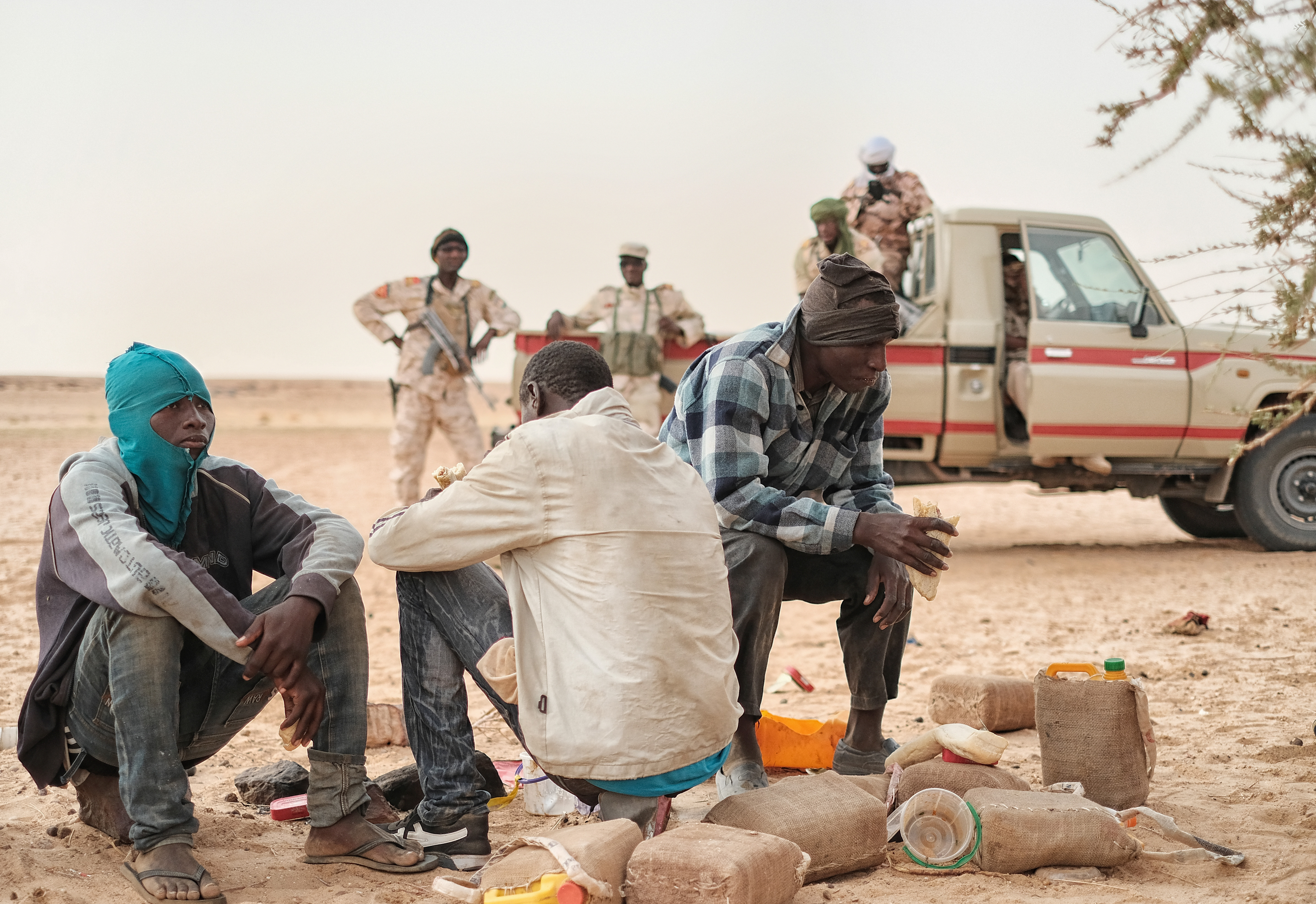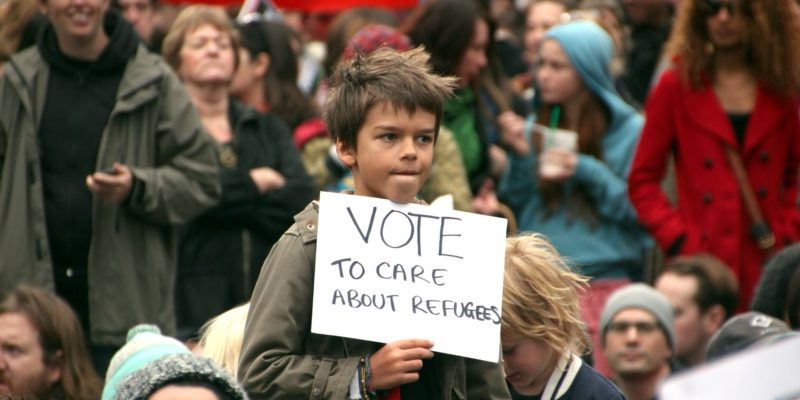1. The election in Italy and populism in Europe
Across Western Europe, right-wing populist parties see their consensus drop because concerns over the “migrant crisis” have subsided. Italy, however, is still an exception: issues of migration, once moderately relevant in the political debate, are now at the heart of the election campaign, as James Dennison, Andrew Geddes and Matthew Goodwin point out in the London School of Economics’ EUROPP – European Politics and Policy blog. Far-right organisations are exploiting this situation, as the article by Patrick Strickland for Al Jazeera explains.
2. Refugees in Germany, how things are changing
Even in Germany, issues of migration and asylum are at the heart of the political debate. For the first time since 1933, a far-right party has been able to present a draft law in the Reichstag: as, AfD has introduced a bill that would permanently ban refugees with subsidiary protection from bringing over their close relatives. As another article in Deutsche Welle explains, the prospective new coalition between SPD and CDU would limit to 1,000 people per month the number of family reunifications for refugees with limited protection status, while the annual total number of asylum seekers taken in would be capped at between 180,000 and 200,000 per year.
Politics aside, asylum is still a hot topic for Germans. Against this backdrop, the murder of a teenage girl with an Afghan migrant boy as the suspect has put the country’s migration policy on trial: read about it in the article by Kathrin Bennhold for the New York Times. Meanwhile, a new study finds that online hate speech has real-world consequences, with an increase in the number of violent attacks against migrants and refugees: read the article in the Economist.
3. Italy in Niger: nothing new under the Sahelian sun
Italy has approved the decree on foreign military missions – with a downsizing of its military presence in Afghanistan and Iraq and the deployment of more troops in Africa, particularly Libya and Niger (where 65 of the total 83 million euros have been allocated). While Italy will bring the number of troops in Libya from 370 to 400, the new mission will see 470 troops deployed in Niger. The real objective, however, is the control of migrant flow to and from Libya, following the usual externalised, securitised approach to migration management: read about it in the articles by Arturo Varvelli and Andrea De Georgio in ISPI Online, as well the analysis by Anca-Elena Ursu in Clingendael. Also read Daniele Biella’s interview with Giacomo Zandonini in Vita (as well as the reports from Niger that Giacomo wrote for us).

Migrants abandoned in the Sahara are found by a military patrol, on the route to Libya (from Giacomo Zandonini’s reportage)
4. Whatever happened to the anti-immigrant ship
Last summer, a ship operated by “Generation Identity” tried to interfere with the NGOs rescuing migrants at sea. What happened to it? The mission was brought to a sudden end and its crew of eight, all of them from Sri Lanka, was abandoned with the ship, without receiving payment for their work. Read the dossier by Andrea Palladino in Famiglia Cristiana (as well as our own in-depth story on Gefira and Defend Europe).
5. Calais, where borders kill
Even with closed borders, evacuations, and police raids, migrants continue on their desperate journey across Europe, braving inhuman living conditions and facing mortal dangers in the attempt to reach the UK. Some of them will not make it. Read the reports by Amelia Gentleman in the Guardian on the 15-year-old Afghan killed by a truck near the port of Calais, and by May Bulman in the Independent on the young man who was hit by a train near Dunkirk and lost both his legs. Also read our own series on border deaths.
6. Seeking refuge in Paris
Out on the icy streets of Paris, listening to the stories of young asylum seekers braving death in search of a better life, but who are still trapped in limbo. Read the report by Erin Clare Brown in the New York Times (as well as our own report from a few months ago).
7. What we can learn from the City Plaza Hotel
An abandoned hotel has become a home for hundreds of people. An occupation that kick-started a process of gradual awareness and empowerment for those living in it. The story of the City Plaza Hotel in Athens is an important one. Read the report by Zareena Grewal in the Atlantic and the op-ed by David Patrikarakos in the Guardian (as well as our own report published one year on from the occupation).
8. Trump’s first year on immigration policy
In an August 2016 campaign speech in Arizona, Republican presidential candidate Donald Trump laid out in ten detailed points the immigration policy he intended to pursue if elected. That speech has proven a remarkably clear roadmap for understanding his priorities since entering the White House. A report from the Migration Policy Institute revisits this ten-point plan, assessing how far the administration has come on each goal since inauguration and considering where its focus may lie in the coming years. Also read the report by John Holman for Al Jazeera.
9. Rohingya, stop the returns
Even as thousands of Rohingya fleeing Myanmar in “a textbook case of ethnic cleansing” sought refuge in Bangladesh last fall, the two countries were negotiating mass returns. This would not be the first premature return for members of “the world’s most persecuted minority”, but part of a larger, alarming trend towards unsafe returns. Read the in-depth story by Jeff Crisp in Refugees Deeply (as well as the op-eds in the Guardian and by Jade Huynh). At the time of writing, the news broke out that repatriation procedures, scheduled for January 23, have been put on hold.
10. An algorithm to help find the right place to resettle refugees
There has been a lot of talk about algorithm recently, and not only about Facebook’s new code. Even experts in migrations and asylum are discussing the potential impact of an algorithm for the integration of refugees. A group of researchers are experimenting with machine learning to find a code that helps find the best location to resettle a refugee, improving an individual’s chances of getting a job by as much as 70 per cent. Read the study, recently published in Science, as well as the article by James Vincent in The Verge (and the author’s tweet on how the algorithm only seems miraculous because the current systems don’t think about where to send people, for political reasons).
Translation by Francesco Graziosi.
Header photo: Takver (CC BY-NC-ND 2.0)









